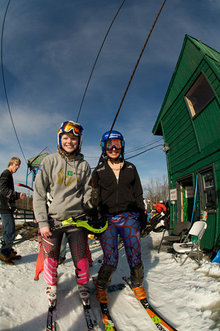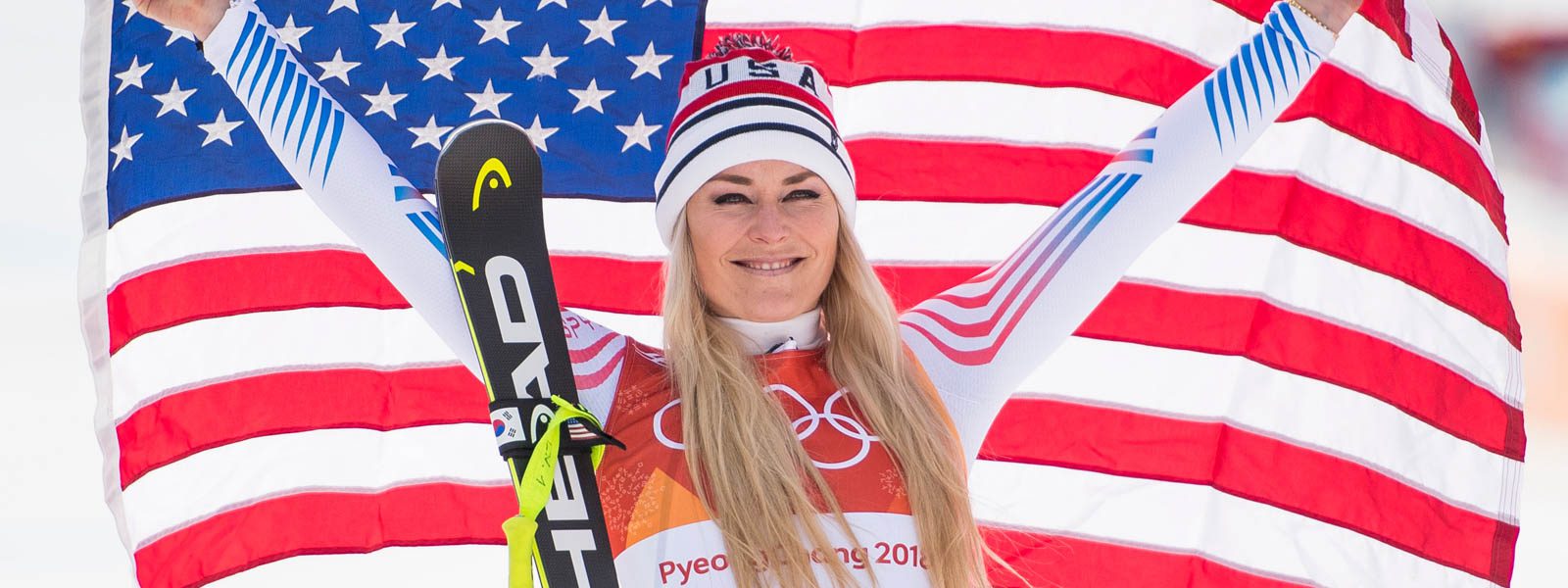Inside the Ski Racing Mind: Confidence Matters
 Confidence is the single most important mental factor in ski racing. Confidence is also a mental area that is ripe for change and, between now and the new year, I will not only be offering you insights into how confidence impacts your ski racing, but also many practical tools for developing confidence.
Confidence is the single most important mental factor in ski racing. Confidence is also a mental area that is ripe for change and, between now and the new year, I will not only be offering you insights into how confidence impacts your ski racing, but also many practical tools for developing confidence.
Confidence is so important because you may have all of the ability in the world to ski well, but if you don’t believe you have that ability, then you won’t perform up to that ability. For example, you may be physically and technically capable of holding a tough line on a GS course, but you won’t attempt that line if you don’t have the confidence that you can, in fact, hold that line.
Prime Confidence
Prime confidence is a deep, lasting, and resilient belief in your ability to achieve your goals. With prime confidence, you are able to stay confident even when you’re not skiing well. Prime confidence keeps you positive, motivated, intense, focused, and emotionally in control when you need to be. You aren’t negative and uncertain in difficult races and you’re not overconfident in easy races. Prime confidence also encourages you to seek out pressure situations and to view big races and difficult conditions as challenges to pursue. Prime confidence enables you to ski at your highest level consistently.
Vicious Cycle or Upward Spiral
To illustrate another influence of confidence, think back to a time when you didn’t have confidence in your ski racing. You probably got caught in a vicious cycle of low confidence and performance in which negative thinking led to poor skiing, which led to more negative thinking and even poorer skiing until your confidence was so low that you didn’t even want to race.
You may get nervous before a race because you believe you will ski poorly. All of that anxiety hurts your confidence even more because you feel physically uncomfortable and there’s no way you can ski well when you’re so uptight. The negative self-talk and anxiety causes negative emotions. You feel depressed, frustrated, angry, and helpless, all of which hurt your confidence more and cause you to ski even worse.
The negative self-talk, anxiety, and emotions then hurt your focus. If you have low confidence, you can’t help but focus on all of the negative things rather than on things that will enable you to ski your best. All of this accumulated negativity hurts your motivation. As bad as you feel, you just want to get out of there. If you’re thinking negatively, caught in a vicious cycle, feeling nervous, depressed, and frustrated, and can’t focus, you’re not going to have much fun and you’re not going to ski well.
Now recall when you have been really confident in your ski racing. Your self-talk is positive: “I’m a good racer. I can ski fast.” With the positive self-talk, you begin an upward spiral of high confidence and performance in which positive thinking leads to better skiing, which leads to more positive thinking and even better skiing.
All of the positive talk gets you feeling relaxed and energized as you approach the race. You have a lot of positive emotions such as inspiration and excitement. You focus on things you need to ski your best. Racing is actually an enjoyable experience for you.
All of the positive thoughts and feelings motivate you to ski. If you’re thinking positively, riding an upward spiral, feeling relaxed and energized, experiencing positive emotions, and are focused on skiing your best, you’re going to have a lot of fun and you’re likely going to ski well.
Why Racers Lose Confidence
 Anything that counters your belief in your ability to achieve your goals will hurt your confidence. The greatest disruption to confidence is failure. Failure can mean making mistakes in a race, for example, sliding low on a tough turn, or having a poor result. You may lose confidence when you see your competitors having better results than you. Your confidence may go down if you have a bad day of training, get sick, are stressed by school work, or feel pressure from your parents.
Anything that counters your belief in your ability to achieve your goals will hurt your confidence. The greatest disruption to confidence is failure. Failure can mean making mistakes in a race, for example, sliding low on a tough turn, or having a poor result. You may lose confidence when you see your competitors having better results than you. Your confidence may go down if you have a bad day of training, get sick, are stressed by school work, or feel pressure from your parents.
Confidence is a Skill
A misconception that many racers have is that confidence is something that is inborn or that if you don’t have it at an early age, you will never have confidence. In reality, confidence is a skill, much like technical skills, that can be learned. Just like with any type of skill, confidence is developed through quality practice.
The problem is that you may not engage in quality practice for positive thinking. Think of it this way. If you have a bad technical habit, for example, you drop your hands as you pass the gate, you probably skied that way for a long time. You have ingrained a bad technical habit you’re your muscles and become skilled at skiing by a gate the wrong way. The same holds true for confidence. If you are very negative all of the time, you are practicing and ingraining those negative confidence skills, so when you race, just like a bad technical habit, that negativity is what will come out and it will hurt your skiing. In other words, you become highly skilled at being negative.
To change bad confidence skills, you must retrain the way you think, just like you would retrain your muscles with a bad technical habit. You have to practice good confidence skills regularly until the old negative habits have been broken and you have learned and ingrained the new positive skills of confidence.
Confidence Challenge
It’s easy to stay confident when you’re skiing well, when the conditions are ideal, and when you’re racing against a field in which you’re one of the best. The real test of confidence, however, is how you respond when things aren’t going your way. I call this the Confidence Challenge. What separates the best from the rest is not that the best don’t have bad days, but rather they are able to maintain their confidence when they’re not skiing their best. By staying confident, they continue to work hard rather than give up, stay focused instead of getting distracted, and remain calm and energized rather than getting nervous because they know that, in time, their skiing will come around. And staying confident, motivated, focused, and calm will get them back on top sooner.
Most racers who ski poorly get caught in the vicious cycle of low confidence and performance. Once you slip into that downward spiral, you rarely can get out of it in the short term. In contrast, racers with prime confidence maintain their confidence and seek out ways to return to their previous level. All racers will go through periods where they don’t ski well. The skill is not getting caught in the vicious cycle and being able to get out of the down periods quickly.
Here are several keys to mastering the Confidence Challenge.
• Develop the attitude that demanding situations are challenges to be sought out.
• Believe that experiencing challenges is a necessary part of becoming the best racer you can be.
• Be well-prepared to meet the challenges.
• Stay positive and motivated in the face of the difficulties.
• Focus on what you need to do to overcome the challenges.
• Accept that you may experience failure when faced with new challenges.
• Most importantly, never, ever give up!
Dr. Jim Taylor drjimtaylor.com,
knows the psychology of ski racing! He competed internationally for
Burke Mtn. Academy, Middlebury College, and the University of Colorado.
For the past 25 years, Dr. Jim has worked with many of America’s leading
junior race programs as well as World Cup competitors from many
countries. He is the author ofPrime Ski Racing Triumph of the Racer’s Mind. Dr. Jim is also the author of two parenting books and speaks regularly to parents, students, and educators around the U.S..
Click here to go to the Inside the Ski Racing Mind archives.





















